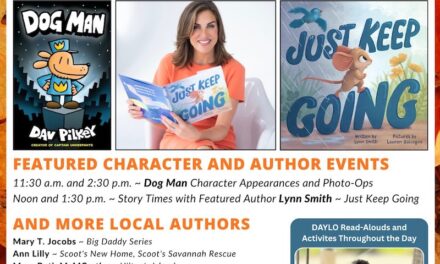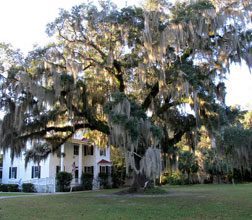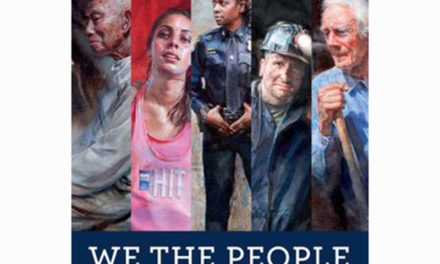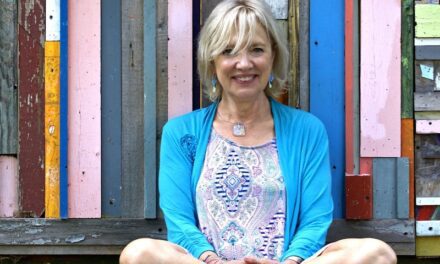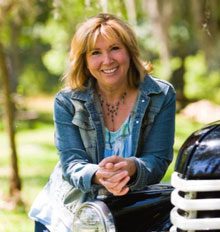 By Margaret Evans, Editor
By Margaret Evans, Editor
Novelist Karen Spears Zacharias is a Georgia-raised Gold Star daughter. Her work as a journalist has been featured in the New York Times and on CNN, NPR, and Good Morning America. She is the author of eight books, including Mother of Rain, which received the Weatherford Award for Best in Appalachian Fiction and was adapted for the stage by Georgia’s Historic State Theater. Karen and her husband divide their time between Oregon and Georgia. She will appear as part of the Pat Conroy Literary Center’s Visiting Writers Series on September 9th with her newest novel, Christian Bend.
I interviewed Karen recently for the Conroy Center’s Porch Talk blog. Here’s a part of that conversation . . .
ME: Hi, Karen. Welcome to The Porch of the Pat Conroy Literary Center. Let’s start with the question we love to ask around here: Do you have a Pat Conroy story?
KSZ: Hey Margaret, lovely to be with you on The Porch. Reflecting on Pat stories brings a smile and fills me with a mirth too often missing from life during these turbulent times.
How about I start with my very first Pat encounter?
I was in my Oregon office when I received a phone call. The caller identified himself as “Pat Conroy.” At the time, I was the Oregon Bureau reporter for Washington State’s Tri-City Herald. My beat included covering the Umatilla Chemical Depot site where Raytheon was busy incinerating tons of chemical weapons, sarin and VX.
We had recently had an employee leave the base with a tube of sarin in his pocket. We’d also had a security guard shot. Tensions between the community and the contractor were at a high.
My first inclination was to run through the list of people I knew at the base named Pat Conroy. I was expecting the caller to follow-up with his title. There was this long pause as I tried to place the caller and then I realized who the caller was: “You mean you are THE PAT CONROY?”
Pat laughed and in that unassuming way of his, he confirmed that he was indeed that Pat Conroy.
He called to thank me for the flowers I had sent to him and Sandra after reading a particularly moving section of My Losing Season, in which Pat talked about the Vietnam War. His words were a healing balm I had needed my whole life long.
ME: You worked as journalist - and, in particular, an opinion columnist - for a long time before you started writing novels. As a fellow columnist/blogger who can barely imagine writing a novel, I’m curious: How do you suspend the urge to editorialize - or “opinionate” - when you’re writing fiction? Or do you?
KSZ: Have you been looking over my shoulder? Prior to tackling this novel series, I wrote several non-fiction books. What I learned through the writing of those books - many missteps later - was that I didn’t need to preach. I simply needed to let the story speak. The magic of fiction is that people will listen to a character like Burdy say things that might put them off if a journalist said them. Burdy is afforded a lot more grace and respect than the editorial writers of our day.
ME: How different, for you, are the processes of writing fiction and non-fiction?
There are more similarities than one might think. Both require that a writer do their research. Prior to writing BURDY, I went to France and walked the beaches of Normandy. I stood among those marble crosses and thought about the day Zebulon Hurd and his buddies parachuted out of that plane. I interviewed World War II soldiers. The skills I learned as a journalist serve me well as a fiction writer.
ME: You’re a Gold Star daughter. Here in Beaufort, you’ll be teaching a workshop to help others write about their experiences “serving on the front lines and the home front.” What’s the biggest mistake people usually make when trying to write about war?
KSZ: Assuming people know what you are talking about. The military is infamous for its acronyms. Anyone who has grown up around the military is used to the insiders’ lingo - SOL, CRS, and FNG are some of my favorites. Although, I have my own definition for FNG – Fine Nice Gal.
That’s just one aspect of that issue. Less than one percent of the civilian population serves, so there is a definite disconnect. As writers, we need to find ways to bridge those communities.
ME: In Beaufort, you’ll also join local writer Stephanie Edwards for a conversation about your new novel CHRISTIAN BEND, the third in a series of books set in the mountains of Tennessee. I haven’t read the first two books, but I just finished the new one, and I’m happy to report it absolutely stands on its own. (Though now I want to go back and read the other two!) The fictional town of Christian Bend, and the characters who live there, are based on a real place and real people, are they not?
KSZ: Well, the place is absolutely real. Christian Bend is a holler - or as we say out West, a wide spot in the road – in Hawkins County, Tennessee. The summer of 1966, I spent a good deal of time there with my Aunt Lucille Christian, who was the inspiration for the character Burdy. The names of some of the soldiers in the novels are taken from real Vietnam Veteran friends of mine, but thatÃâs more just a nod to honor them. The characters are not based upon them.
ME: In keeping with the theme of your writing workshop - a perfect fit for our military town, by the way - your novel deals with the ravages of war . . . on those who fight and those who are left behind. How do you think losing your father in Vietnam shaped you as a writer?
KSZ: Vietnam made me a writer.
There was such awful silence following my father’s death. Our family never spoke of him again, until I began the quest to reclaim him. Writing enabled me to take the chaos of Dad’s death and fashion it into some sort of order. Storytelling was a way to ransom the sacred that was lost to us all for so long.
ME: Christian Bend is not an overtly religious book – “Christian” is the name of a family, not a faith - but it’s not without religious undertones, either. How does your own faith inform your writing?
KSZ: It’s my sincerest hope that my faith informs everything about my life. I believe that whatever talent I may possess was the gift God gave me. My deepest desire is to use that gift in a way that honors the Giver. My greatest fear is that I may say something that makes God regret giving me that gift. I’m sure I’ve made God wince more than once already.
ME: Tell us a little bit about your next project.
KSZ: ME: I have a true crime in the works and a young adult novel I’m pondering.
ME: What are you reading these days?
KSZ: Michel Stone’s Border Child. I recommend it highly. And Senator Jeff Flake’s The Conscience of a Conservative. An odd thought, isn’t it? That a conscience would have a political affiliation?
Karen Spears Zacharias will be in conversation with Stephanie Austin Edwards on September 9th from 5 - 6:30 pm in the auditorium at TCL in Beaufort. The event is free and open to the public. Books will be available for purchase and autographing thanks to NeverMore Books. For more information visit www.patconroyliterarycenter.org

